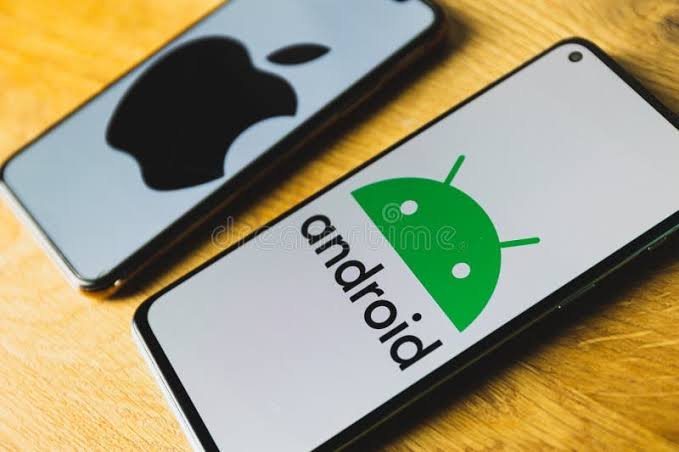
When it comes to the world’s most debated comparisons, the iPhone vs. Android debate is definitely among the top two—right after the Messi vs. Ronaldo debate. Just like the latter, everyone has their own opinions and reasons for choosing either the iPhone or Android.
Source
Having used both, I believe I can offer a fair and balanced comparison of their strengths, weaknesses, and overall user experience. I'll compare them based on six factors: Performance, Camera, Battery Life, Software Support, Cost, and Customization.

- Performance
When it comes to performance, iPhones (both old and new models) are known for their fast and consistent performance. They rarely lag, even when storage is low, thanks to Apple's optimization between hardware and software. On the other hand, for an Android phone to match this level of performance, you often need to invest in premium devices like Samsung Galaxy, Google Pixel, or similar high-end brands. Budget Android phones, while improving, still can’t quite compete at the same level.
- Camera
The iPhone’s reputation in photography is unmatched, and it has set the standard for other brands to follow. Its camera quality is a favorite among content creators, offering sharp and consistent results. While many Android brands have made significant strides in camera quality, the iPhone still has an edge in this department. However, flagship Android models such as the Pixel and Galaxy series are closing the gap quickly.
- Battery Life
This is where most Android phones outperform the iPhone. While Apple has made improvements in its recent models, older models like the iPhone XR had notoriously weak battery life. Additionally, iPhones are prone to overheating, which is a common joke among Android users that “You’ll need a refrigerator and a power bank to survive with an iPhone!” In contrast, many Android phones come with bigger batteries and better thermal management, giving them a clear lead in this area.
- Software Support
Apple excels in software support, providing frequent updates even for older devices, ensuring stability and data security. iPhones also restrict downloads from unknown sources, enhancing their security. Android, on the other hand, varies depending on the manufacturer. Some brands like Google Pixel and Samsung offer excellent updates, but others fall short. I’ve personally experienced issues with an Android phone due to a corrupted file, which eventually forced me to reset the phone and lose most of my data—an issue less likely to occur on an iPhone.
- Cost
Source
Android wins in terms of affordability, offering a wide range of devices to suit different budgets. From budget-friendly brands like Itel, Tecno, and Redmi to premium models from Samsung and Google, Android caters to everyone. Meanwhile, iPhones are notoriously expensive, even in the resale market. This is largely due to their high-quality materials and build.
- Customization
Android phones offer far more customization options than iPhones. On Android, you can change fonts, themes, and more, allowing users to personalize their experience. In contrast, iPhones stick to a more uniform and minimalist approach, offering fewer customization features.
Ultimately, the choice between an iPhone and an Android phone depends on what features matter most to you. Each has its own strengths and weaknesses, so it’s all about what downsides you can live with.
As for me? I guess I’ll invest in a refrigerator and a power bank to support my iPhone lifestyle!😂😂
Posted Using INLEO
You’ll invest in a refrigerator and a power bank to support your iphone lifestyle?🤣
😂😂 as an investor, I think that's a smart move
😂😂